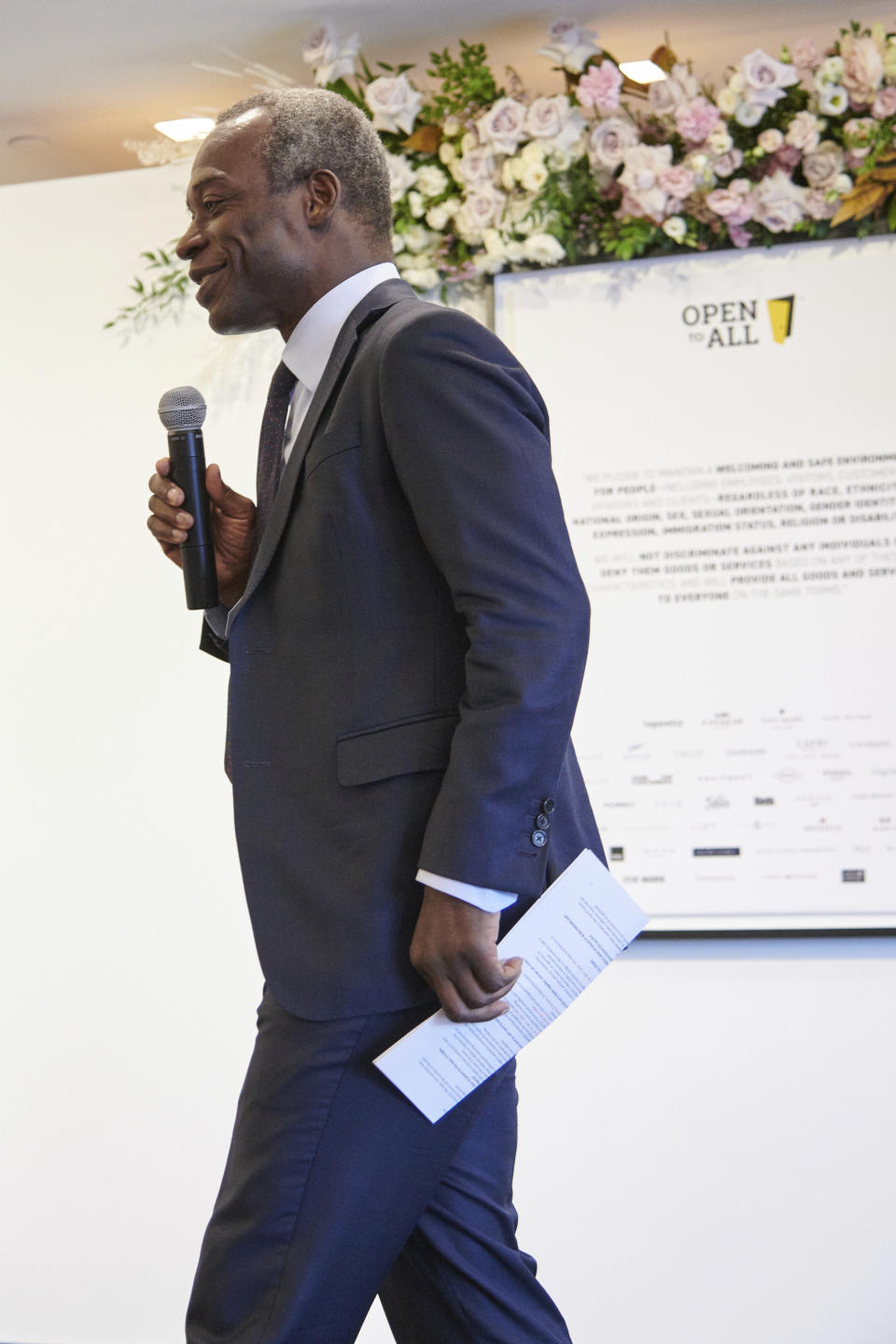Tapestry CEO Jide Zeitlin talks diversity: 'Talent comes in many forms'
Jide Zeitlin, chairman and CEO of Tapestry, has put inclusion training at the core of his company’s sales growth strategy.
The company controls some of the world’s most recognizable brands such as Coach and Kate Spade. In his first TV interview as CEO, Zeitlin —one of only 4 African American CEOs of a Fortune 500 company — explained his outlook to Yahoo Finance.
The ex-Goldman Sachs banker has been chairman of Tapestry’s board since 2014, and was appointed CEO last September. As Tapestry’s chief, Zeitlin is taking aim at the fashion industry’s most unforgiving qualities -- like its penchant for hierarchy worship, cutthroat competition and piercing glances that seem to ask: ‘What is she wearing?’
According to Zeitlin, “Talent comes in many forms. And a lot of times people take a look at diversity statistics and ultimately what we understand is that diversity statistics really do matter.”
He added: “What matters as much or more is your culture.”
Recently, Tapestry launched an inclusivity training program for employees, as part of an effort to create a culture where employees are curious about, and actively seek to understand, their colleagues' perspectives.
“Inclusivity training helps us to understand that our colleagues have different perspectives often than we do, and that that is a real strength,” he said.
Bottom line, inclusion is good for business. Zeitlin says the company is already starting to reap the benefits.
‘Establishing what our values are’

“Our ability to have our employees bring their full selves to work impacts everything from our creativity, our innovation, to day-to-day decisions that we make,” he said.
Zeitlin explained that better understanding the perspectives of colleagues from diverse backgrounds informs strategies for achieving greater sales growth, by meeting consumers where they are and eliciting strong desire from them.
Tapestry is also relying on a diverse group of superstars to help power consumers’ connections to their brands. Both Michael B. Jordan and Jennifer Lopez signed on as spokespeople for Coach last year.
“It really is ultimately about establishing a sense of what our values are. Establishing a sense of what’s important to us...at the Coach brand,” said Zeitlin. “We think about that very deeply whether it’s a Kate Spade, whether it’s a Stuart Weitzman also.”
Over 210 million consumers shop at Tapestry’s brick and mortar stores and online every year. Tapestry’s recently reported fiscal second-quarter earnings that beat expectations, were boosted by strong sales.
While Coach’s global same store sales grew 2%, Kate Spade saw a 4% decline. It’s been about two years since its namesake committed suicide, something Zeitlin insisted hasn’t slowed the brand down.
“We were clearly quite saddened at Kate’s passing but in terms of the core brand equities, the core brand equities at Kate Spade are as strong as ever in terms of it’s a brand that really speaks to femininity, to fun, to fashion and has a very strong core base of consumers,” said Zeitlin.
More from Sibile:
How a publishing company started by a former slave has lasted for 120 years
Sallie Krawcheck tells women: ‘Sometimes it’s not you, it’s him’
Teen activist Marley Dias defends Greta Thunberg: ‘I get hate like that sometimes’
Millennials most likely to commit financial infidelity: survey
Black Fortune 500 CEO: ‘Unusual things’ still happen to me because of my race

